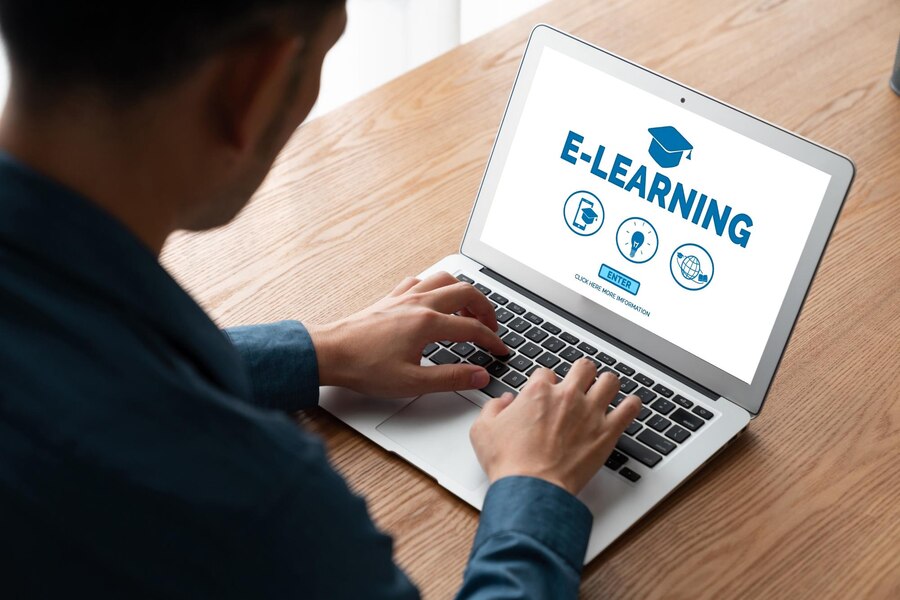In today’s competitive business world, organizations understand the importance of continuous learning and development to enhance productivity and stay ahead of the curve. This has led to the rise of learning management software (LMS) that enables trainers and employees to interact virtually and foster a culture of knowledge sharing and growth. This article will explore the world of LMS comparisons, helping you navigate the vast array of options available and find the perfect learning management software for your organization’s unique needs.
Understanding Learning Management Software (Lms):

Learning management software facilitates The entire learning process, commonly referred to as a training management system, learning activity management system, or learning experience platform (LXP). It acts as a centralized platform for hosting, delivering, and tracking training content, enabling organizations to specify and evaluate learning objectives for individuals and the organization, keep track of development, and gather information for oversight and analysis.
Types Of Learning Management Software:
Businesses have a variety of alternatives when it comes to choosing the best LMS. Let’s look at a few popular categories of learning management systems:
- Talent LMS:Talent LMS is a thorough learning management system created for effective training. It provides a smooth learning experience for teachers and students alike thanks to its user-friendly design and mobile app accessibility. The key features are rich communication tools, certifications, language support, and numerous customization choices. Talent LMS is a popular choice for organizations of all sizes because of its reputation for offering comprehensive training solutions.
- Software as a Service (SaaS): SaaS-based LMS systems use cloud technology to offer adaptable and scalable training choices. They benefit from not taking up space on the company’s servers, making learning resources accessible from anywhere. Many organizations use SaaS LMS platforms like Absorb LMS because they offer frequent upgrades and include cutting-edge technical improvements.
- Hosted LMS:Installing hardware or software on devices needed to access training courses is part of the hosted learning management system (LMS). The IT team of an organization must do manual maintenance, upgrades, and support for this kind of LMS. Compared to SaaS-based systems, it takes more work to administer despite providing more flexibility and customization choices.
Benefits Of Learning Management Software:
The correct LMS implementation may assist organizations in a variety of ways. Let’s look at some of the main benefits of using learning management systems:
- Centralized Learning Content:LMS offers a single location for storing all eLearning resources, reducing the chance of information loss and facilitating simple access for students.
- Unrestricted Access to Learning Resources:Learners have unrestricted access to the learning resources posted on the LMS using their cell phones or other devices. No matter where you are, learning will always be ongoing.
- Progress monitoring and performance evaluation:Trainers may efficiently monitor learners’ progress, evaluate their performance, and offer extra assistance or resources to help them reach their training objectives.
- Savings:Using an LMS replaces the requirement for conventional training techniques that include paying for travel, conferences, printing, and lodging. Organizations may dramatically cut expenses and conserve key resources by utilizing eLearning.
- Time Savings:LMS gives students access to certain training modules and materials, saving time by giving them targeted and pertinent knowledge rather than making them seek voluminous internet resources.
- Self-Assessment and Interactivity:LMS allows students to take tests for self-evaluation and participate in interactive sessions to determine their level of understanding.
Features To Look For In Learning Management Software:
The following essential elements should be taken into account when choosing an LMS for your business:
- LMS Integrations:To improve the learning and development process, ensure the LMS can easily link with other programmes and platforms like SharePoint, GoToMeeting, Microsoft Teams, Zoom, and BigBlueButton.
- Data tracking capability:Seek out an LMS that enables instructors to monitor students’ development and create unique learning plans based on each student’s requirements and performance.
- Personalized User Experience:To provide a customized and engaging learning environment, a good LMS should provide learners with personalized learning modules based on their jobs, prior interactions, and preferences.
- Offline Learning Trackers: Consider an LMS that makes it possible to record the outcomes of offline assessments, enabling trainers to record and alter tests following certain abilities or talents.
- Test-Out Options:Consider an LMS with test-out features, which let learners assess their understanding and bypass pointless training sessions to streamline their learning process.
- Security and Hosting choices: To protect critical user information, prioritize an LMS with strong security standards. Then, consider hosting choices based on the security needs of your company.
- Assessment Tools and Feedback Mechanisms:An effective LMS should include assessment tools, such as examinations, simulations, and branching scenarios, enabling trainers to measure engagement, retention, and comprehension. Additionally, feedback mechanisms facilitate communication between trainers and learners, promoting continuous improvement.
Conclusion:
Learning management software enables organizations to offer efficient training and development initiatives in the contemporary corporate environment. Businesses may save expenses, optimize engagement, streamline administration, and foster a culture of lifelong learning by choosing the proper LMS. When contrasting various learning management software choices, evaluate your organisation’s particular requirements and consider elements like functionality, integrations, data tracking capabilities, and user experience. To unleash the full potential of your employees and achieve a competitive advantage in today’s fast-paced world, embrace the power of LMS. Remember that detailed LMS comparisons will aid your decision-making and pave the road for your company’s and its workers’ successful learning journey.
Read Also:




























